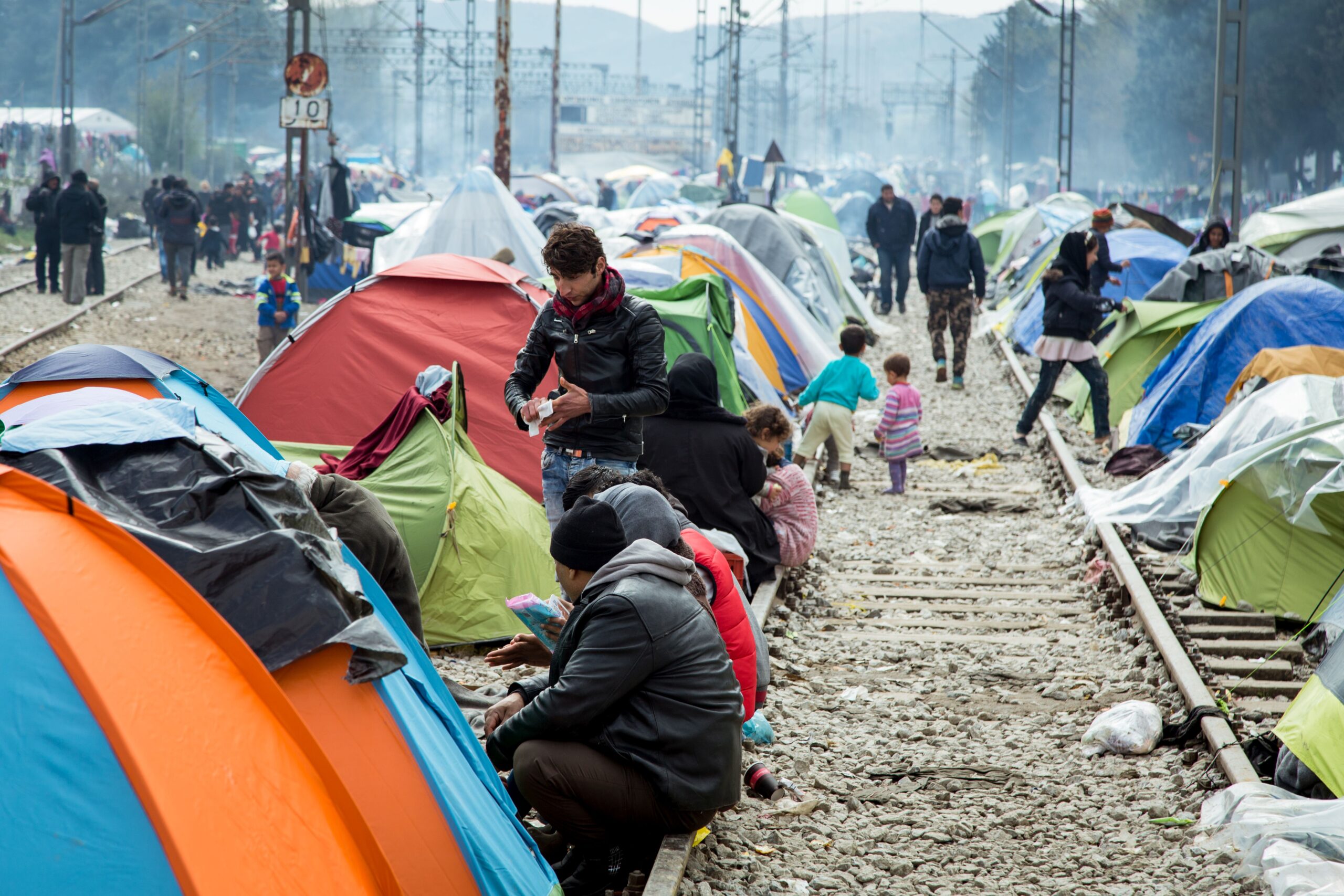In our increasingly interconnected world, the term “refugee” often evokes a plethora of emotions, assumptions, and an array of social dynamics that elicit both empathy and controversy. This discourse transcends mere statistics or policy debates; it touches the very essence of humanity. As we delve into the Bahá’í teachings, we confront a profound inquiry: “Who are the refugees? You, me, or them?” This question beckons us to reflect on the nature of suffering, identity, and our collective responsibilities.
The Bahá’í perspective is rooted in principles that emphasize the oneness of humanity. This foundational tenet challenges us to critically examine the categorization of refugees as ‘others.’ Instead, we are urged to foster a vision that sees each individual as part of a singular tapestry—one that is intricate yet fundamentally united. In understanding this interconnectedness, we realize that refugees are not merely displaced individuals; they are our shared kin. The spiritual narrative invites us to explore the deeper, often unrecognized dimensions of displacement and belonging.
To begin, we must recognize the multifaceted nature of refugeehood. Traditionally, refugees have been defined by their forced migration due to conflict, persecution, or natural disasters. However, this delineation overlooks numerous subtleties. There exists a spectrum of displacement, ranging from the economic migrant seeking better opportunities to those fleeing systemic oppression. In a globalized economy, where individuals are often uprooted for the pursuit of safety and opportunity, we must ponder whether we too bear the marks of relocation. Are we not, at times, refugees in our own contexts—seeking solace from socio-economic upheaval, political instability, or even cultural alienation?
This leads to an exploration of empathy within the Bahá’í framework. The teachings stress the imperative of understanding others’ experiences as a means of fostering compassion and solidarity. Consequently, when we perceive refugees as merely ‘them,’ we cease to engage with their stories, reducing them to statistics or headlines. The Bahá’í principle of service invites us to actively participate in alleviating suffering. This active engagement compels us to look beyond our comfort zones and challenge the narratives that separate us from those who endure exile and hardship.
Moreover, the phenomenon of globalization bears significant implications for the refugee experience. Modernity equips us with tools for communication and connection, yet it simultaneously exacerbates divisions. This dichotomy generates perplexity within our societal consciousness. When we encounter refugees, we may feel a sense of fascination, not solely because of their plight, but due to the paradoxical position they occupy within the global framework. They exemplify endurance, resilience, and adaptability in the face of profound adversity—qualities that resonate universally. The narrative becomes more than one of victimization; it transforms into a compelling tale of human fortitude, perhaps mirroring our own struggles in myriad forms.
Yet, this recognition also warrants a critical examination of privilege. The juxtaposition of our lived experiences with those of refugees may illuminate troubling truths about the inequities inherent in our global society. When we reflect on the luxuries of safety and comfort that we often take for granted, we must confront the unsettling question of how such privileges can coexist with the suffering of others. The Bahá’í teachings advocate for justice and equity, urging us to contest systemic injustices that perpetuate the conditions leading to forced migration. This inquiry into privilege necessitates a reassessment of our daily choices and societal structures, prompting us to actively work towards a more equitable world.
Furthermore, the theology of collective consciousness extends to the understanding of identity. In the Bahá’í faith, individuals are considered not just as isolated entities but as contributors to a collective destiny. Thus, the plight of refugees mirrors a broader communal experience; their struggles serve as reflections of our own vulnerabilities and aspirations. This interdependence calls for an acknowledgment that their victories and hardships resonate within our societal fabric. When we advocate for the rights of refugees, we inherently affirm our own humanity, recognizing that our individual and collective destinies are inextricably linked.
The narrative of refugees also challenges our perceptions of home. The concept of territoriality often engenders mindsets that equate citizenship with worthiness, which can be profoundly alienating. The Bahá’í teachings emphasize that our true home lies within a larger spiritual reality—a sanctuary that transcends physical borders. Hence, when we view refugees not merely as individuals removed from their countries but as fellow beings seeking a place of belonging, we cultivate a spirit of kinship that can help to dismantle barriers of fear and misunderstanding.
Ultimately, the question, “Who are the refugees? You, me, or them?” serves not only as a catalyst for introspection but also as a clarion call for solidarity. In reconciliation with the plight of refugees, we find an opportunity to expand our understanding of community and our role within the global narrative. By engaging empathetically, confronting systemic injustices, and recognizing the shared attributes of vulnerability and resilience, we can work toward a collective future characterized by compassion and unity. In doing so, we honor the Bahá’í vision of a world where the dignity and worth of every individual are upheld, and where the experience of one is truly the experience of all.
The path to fostering this understanding is undeniably fraught with challenges, yet it is also imbued with the promise of transformation. As we deepen our engagement with the circumstances surrounding refugees, we are invited to be part of a larger movement towards healing—a healing that transcends borders and speaks to the very core of our collective existence. As we navigate our individual and communal journeys, may we embrace the essence of humanitarianism, allowing it to guide our actions and illuminate our understanding of who we truly are in relation to one another.
